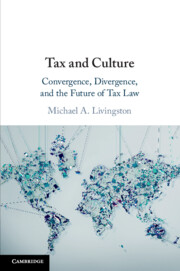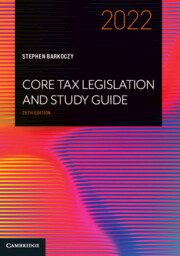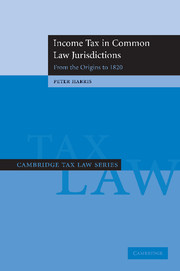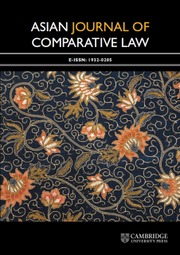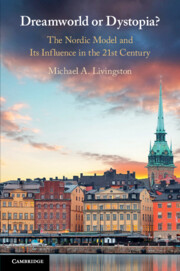Tax and Culture
Tax scholars traditionally emphasize economics and assume that all tax systems can be evaluated in more or less the same way. By applying the insights of anthropology, sociology, and other social sciences, Michael A. Livingston demonstrates that tax systems frequently pursue different values and that the convergence of tax systems is frequently overstated. In Tax and Culture, he applies these insights to specific countries, such as China and India, and specific tax issues, including progressivity, tax avoidance, and the emerging area of environmental taxation. Livingston concludes that the concept of a global tax culture is, in many cases, merely a reflection of Western hegemony, and is unlikely to survive the changes implicit in the rise of non-Western nations and cultures.
- Provides a more sophisticated understanding of contemporary tax issues by applying the insights of a variety of social sciences
- Discusses societies usually ignored by tax scholars, including China, India, and other non-Western societies
- Connects tax law with research in other comparative law subjects to make tax law less isolated and more interesting to non-specialists
Reviews & endorsements
‘The book Tax and Culture: Convergence, Divergence, and the Future of Tax Law, by Michael Livingston, makes an exceptionally valuable contribution to the field of critical tax scholarship, and to tax legal scholarship more broadly.’ Ann Mumford, British Tax Review
Product details
June 2022Paperback
9781316502006
143 pages
228 × 151 × 9 mm
0.22kg
Available
Table of Contents
- 1. Introduction: comparative law and its relevance to the tax field
- 2. Tax anthropology: attitudes, behaviors, and the role of historical contingencies
- 3. Tax sociology: the significance of tax institutions
- 4. Convergence, divergence, and the persistence of national differences
- 5. Case studies I: the tax cultures of selected Western and nonwestern countries
- 6. Case studies II: progressivity, tax avoidance, and environmental taxes
- 7. Conclusion: the limits of globalization and the continuing importance of culture.

